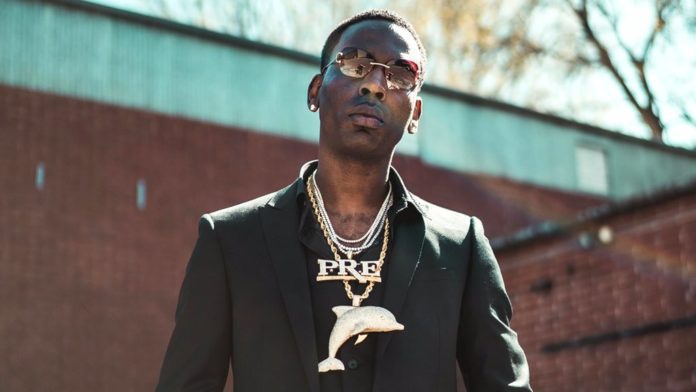In a crucial upcoming decision on February 9, a Shelby County judge will rule on whether the trial for the accused killers of Memphis rapper Young Dolph should be moved outside the county.
The defense, particularly for Justin Johnson, one of the four men charged, has requested a change of venue, citing extensive local media coverage and the beloved status of Young Dolph in Memphis as potential biases against a fair trial.
Johnson’s lawyer, Luke Evans, told Judge Jennifer J. Mitchell that the killing has received relentless attention from news outlets and on social media, where some commenters have called for Johnson to be lynched or killed in prison in an attempt to seek vengeance, not justice.

“The victim in the case is beloved here,” Evans said, adding later that a “jury from somewhere else lacks that personal connection to the crime.”
Johnson and Smith have pleaded not guilty in the killing of Young Dolph, whose real name was Adolph Thornton Jr. The rapper, producer and independent music label owner was gunned down while he was visiting his hometown to see a sick relative and hand out Thanksgiving turkeys.
The request highlights the challenge of finding an impartial jury in a case that has deeply impacted the Memphis community and garnered national attention.
The prosecution counters that despite the high-profile nature of the case, an unbiased jury can be found within Shelby County.
Prosecutor Paul Hagerman noted that the killing of former NBA player Lorenzen Wright — another respected Memphis figure — also received heavy media attention, but the court was able to find impartial jurors for his 2022 trial. A man was found guilty of the 2010 slaying of Wright.
“You’re always surprised in cases like this how many people don’t watch the news at all,” said Hagerman, the prosecutor in the Wright case.
Hagerman recommended that questionnaires be sent to a potential jury pool of about 150 to 200 people to gauge the effect of news coverage and social media commentary. Once that pool is winnowed down, the judge would question the remaining members of the jury pool about the media coverage.
The judge’s decision will be a pivotal moment in a case that has riveted the city since the tragic shooting of Young Dolph at Makeda’s Homemade Butter Cookies in November 2021. This case represents not just a legal battle, but a moment of reckoning for a city grappling with the loss of a cultural icon.
Two other men were charged in the killing, which shocked Memphis and the entertainment world.

Hernandez Govan has pleaded not guilty to organizing the killing. A trial date has not been set for him. Jermarcus Johnson pleaded guilty in June to three counts of serving as an accessory after the killing by helping Smith and Justin Johnson, his half-brother.
Jermarcus Johnson acknowledged helping the two shooting suspects communicate by cellphone while they were on the run from authorities and helping one of them communicate with his probation officer.
Mitchell is the second judge to preside over the case. Judge Lee Coffee removed himself in October after he was ordered to do so by a Tennessee appeals court, which questioned whether he could be impartial after he failed to inform Justin Johnson’s lawyer about an order limiting Johnson’s ability to communicate with people outside the jail.
The ruling on the motion for a change of venue will set the course for a trial that is not only a matter of justice for the accused but also a significant event for the Memphis community, still mourning the loss of a figure who was much more than a rapper to many – he was a symbol of Memphis itself.
Known for his depictions of tough street life and his independent approach to the music business, Young Dolph was admired for charitable works in Memphis. Along with the Thanksgiving turkey giveaways, he donated thousands of dollars to high schools and paid rent and covered funeral costs for people in the Castalia Heights neighborhood where he was raised. A neighborhood street was named after Young Dolph after his death.
The Associated Press contributed to this report.



